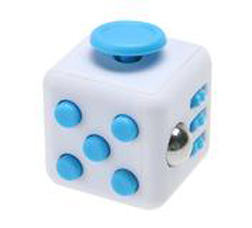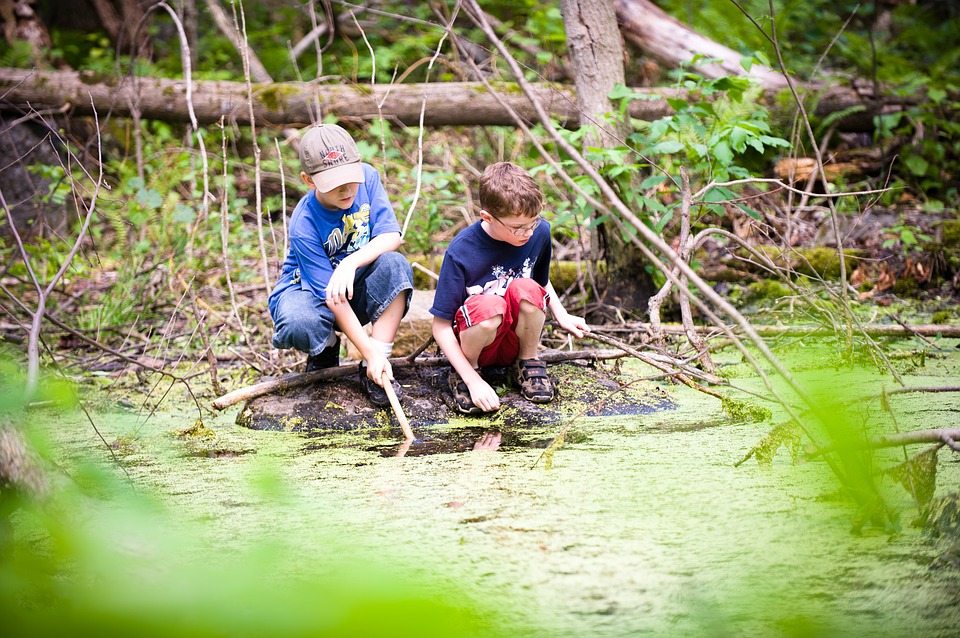Making this year different for your child...
Jan 22, 2017
I personally loved school... so I have fond memories of the back-to-school preparations. But I know so many families don't have joyful feelings about it. For some children it feels like the freedom is about to finish again, and they'll be back to daily struggles that seem so tough. For others it's just a little bit of extra anxiety and pressure. And for some most things go okay, but there is an issue here or there that is always hard - like handwriting, reading, or making and keeping friends - and it feels like no matter how hard they try they just can't get good at it.
I'm a proactive person through and through. So if there is a challenge or a problem in front of me I love to be right there thinking of strategies to deal with it as best and positively as I can. So I put together a short little list of my favourite strategies that might help you and your child brainstorm some ways youcan be proactive so that this year can be the best yet...
...so that this year any challenges that may have plagued your child can start to be addressed... so that this year it can feel like everyone moves forward...

1. So you've done your shopping for your child's booklist, and you finally have a moment to breathe. Take a bit of time to consider the main issues that have been challenging for your child. Write them down. Have a think about what might be underlying them. And make a proactive plan about how to make this year different... In doing this, make sure to prioritise their mental and emotional health needs as high as their academic needs. It's nearly impossible to learn when you are anxious and stressed... so this year what tools, services, people and resources will you be investigating to try and help them overcome their greatest challenges?
 2. If you have a child who needs to fiddle to concentrate then make sure they are equipped with some good resources right from the start. My favourites are the fidget cube and modelling beeswax because they are both fun, not distracting for others, unobtrusive, feel nice, and meet a need. Make sure to try them at home first to ensure they do help your child focus. And also make sure to let your teacher know your child has them and why so your child doesn't have to explain all that complex stuff about sensory needs themselves.
2. If you have a child who needs to fiddle to concentrate then make sure they are equipped with some good resources right from the start. My favourites are the fidget cube and modelling beeswax because they are both fun, not distracting for others, unobtrusive, feel nice, and meet a need. Make sure to try them at home first to ensure they do help your child focus. And also make sure to let your teacher know your child has them and why so your child doesn't have to explain all that complex stuff about sensory needs themselves.
3. Provide them with top quality drawing and writing materials. I love too many crayons and pencils to name - some of mine are such good quality they have been going strong for 5 years with therapy sessions and constant use (although they are getting pretty short and I probably need to replace some this year). I do especially love Crayon Rocks for building strong and sensitive tripod fingers. Once a child has learned to hate drawing and writing, using excellent materials is one great strategy to begin to turn around their view of themselves as a drawer and writer.
4. This would have to be my must read book of the year... "Parenting in the Age of Attention Snatchers". I think everyone raising children in this day and age should have to read this book. It was the first book that I felt "yes, they totally get my struggle with trying to balance my children having access to technology, but not being completely sucked in by it"... and it gave me tools to discuss issues with my children, and rather than setting "boundaries" about screen time, to view it differently. I have been able to teach my children about different types of attention, and how the attention we pay to a screen is "involuntary attention". Yet the type of attention they need to develop to be successful in the world is "voluntary attention". We've all been able to learn that sometimes time spent in front of a screen, like right now when I'm typing a blog post and concentrating well, is voluntary attention... yet other times when I'm distracted, know I should be getting off to cook dinner or fold laundry but just feel like browsing a few more interesting travel blogs for the heck of it... that's involuntary attention. I could spend a whole post going over the great insights I learnt from this book and what an impact it has had on the whole family... but rather than waste your time I'm just going to say "Get the book whether you have to beg, borrow or steal it and learn as much as you can to help build your child's ability to pay attention, and awareness and self-control about screens and technology in their own lives".
5. Be intentional about having fun... make having fun a priority!!!

This one has at times been a real struggle for me, when I'm juggling work, nappies, dinner, the dirty floor and trying to help my children get along! This year I've decided to be ahead of the game in making sure we do the fun stuff we love to do rather than letting the weeks slip by with this job and that after school activity. So far we've managed to include some fun swims, a horse ride, a few hunting trips, picnic dinners in the garden, walking in muddy puddles and a family movie night or two. No rules about what anyone else thinks is fun...
So while your cherished chickens are getting back to school... it's time for you to plan ahead to prepare for a positive year for your child and family!
Disclaimer
The information, including but not limited to text, graphics, images, and other material contained on this website are for informational purposes only. This website is not intended to be a substitute for professional medical, healthcare or educational advice, diagnosis, or treatment. Always seek the advice of a qualified healthcare provider for any questions you may have regarding you or your child’s health concerns, and never disregard professional medical advice or delay in seeking it because of something you have read on this website.
blog comments powered by Disqus
